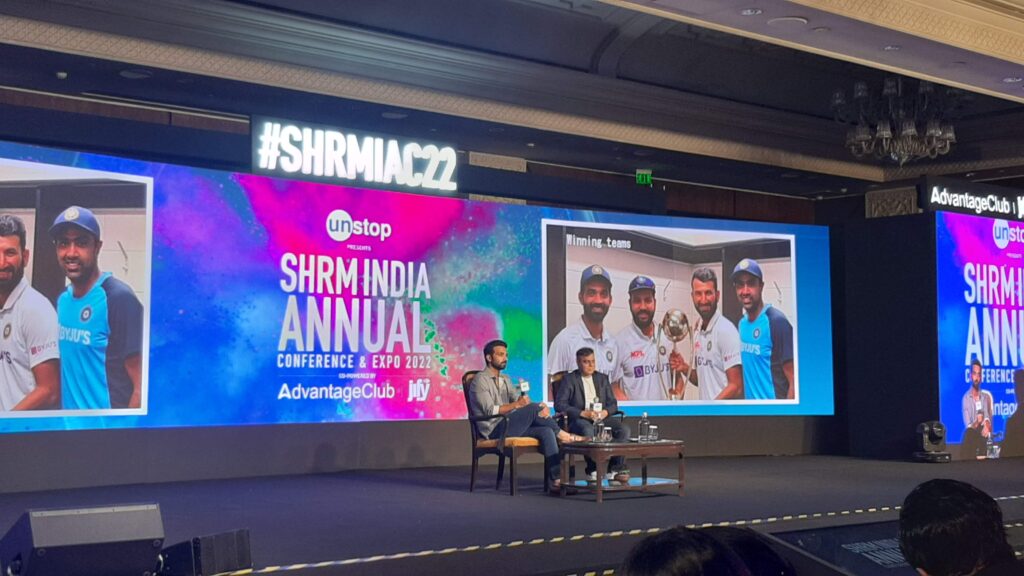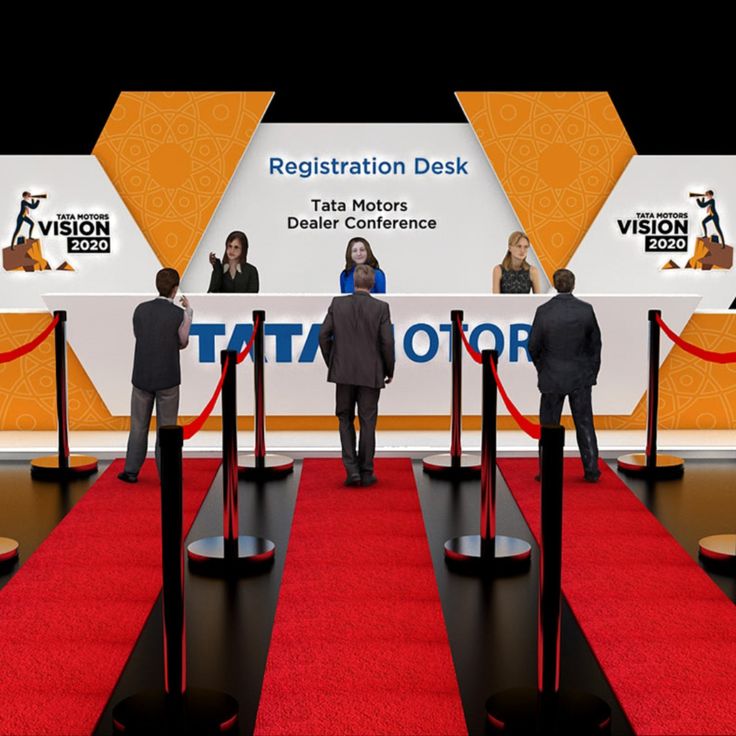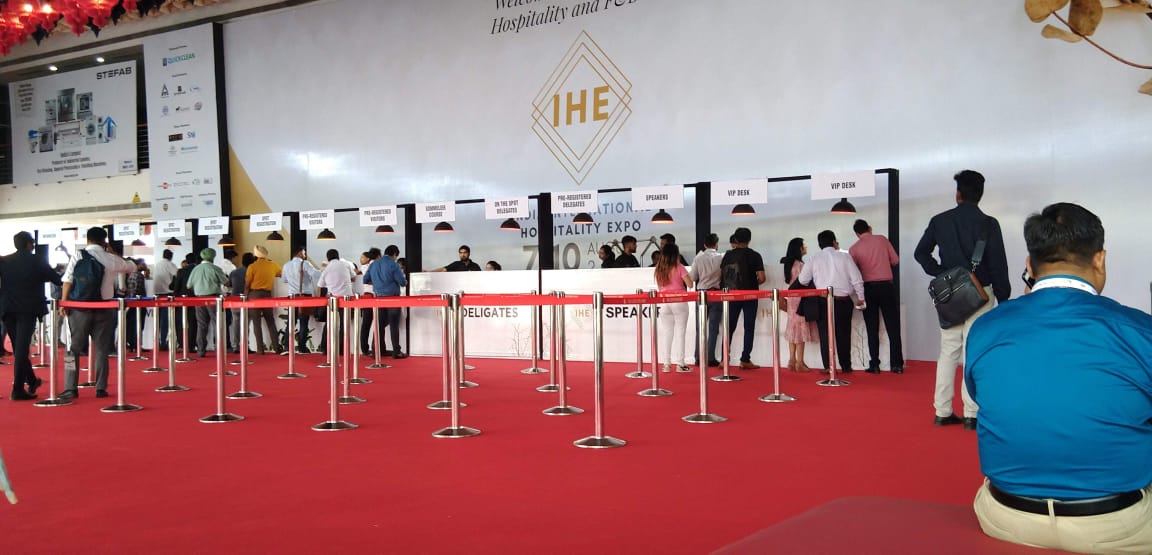D Signature Live: Mastering the Art of Exhibition Management-
In today’s competitive business environment, live events, especially exhibitions, D Signature Live Mastering the Art of Exhibition Management play a pivotal role in enabling companies to showcase their products, services, and innovations. Exhibitions provide a unique platform for direct interaction with potential clients, partners, and industry stakeholders. D Signature Live, an event management company, specializes in delivering comprehensive exhibition management services from inception to conclusion. This essay will explore the extensive range of services provided by D Signature Live mastering the art of exhibition management, detailing each phase of their event management process and highlighting their expertise in creating memorable and impactful exhibitions.
Conceptualization and Planning
Understanding Client Needs
The first step in managing a successful exhibition is understanding the client’s needs and objectives. D Signature Live starts with in-depth consultations to gain insights into the client’s vision, goals, target audience, budget, and expectations. This initial phase involves:
- Client Meetings: Detailed discussions to understand the purpose and vision of the exhibition.
- Needs Assessment: Identifying specific requirements, including space, technology, and amenities.
- Goal Setting: Establishing clear, measurable objectives for the event.
Market Research and Feasibility Studies
After understanding the client’s needs ,D Signature Live conducts thorough market research and feasibility studies. This ensures the exhibition is strategically positioned and relevant to the industry trends and audience demographics. Key activities include:
- Market Analysis: Studying the market to identify opportunities and challenges.
- Feasibility Studies: Assessing the practicality and financial viability of the event.
- SWOT Analysis: Identifying strengths, weaknesses, opportunities, and threats.
Budget Planning
Effective budgeting is critical for the success of any event. D Signature Live provides detailed budget plans encompassing all aspects of the exhibition to ensure there are no financial surprises. This involves:
- Cost Estimation: Breaking down costs for venue, equipment, staffing, marketing, and other essentials.
- Contingency Planning: Allocating funds for unexpected expenses.
- Financial Reporting: Regular updates on financial status to the client.
Design and Development
Creative Concept and Theme Development
Creating a captivating and cohesive theme is essential for an exhibition’s success. D Signature Live creative team develops unique concepts that align with the client’s brand identity and objectives. This process involves:
- Brainstorming Sessions: Collaborative meetings to generate creative ideas.
- Theme Selection: Choosing a theme that resonates with the target audience.
- Concept Visualization: Creating sketches, mood boards, and 3D renderings to visualize the concept.

Venue Selection and Management
Selecting the right venue is crucial for the success of an exhibition. D Signature Live ensures the venue meets the client’s needs and the event’s objectives. Key activities in this phase include:
- Venue Scouting: Identifying potential venues that meet the event’s requirements.
- Site Visits: Conducting thorough inspections of shortlisted venues.
- Venue Booking and Coordination: Handling negotiations and bookings, and liaising with venue management.
Exhibition Layout and Design
A well-designed exhibition layout enhances the attendee experience and facilitates better engagement. D Signature Live design team focuses on creating functional and aesthetically pleasing layouts. This involves:
- Space Planning: Efficiently utilizing the available space to accommodate various elements such as booths, stages, and lounges.
- 3D Modeling: Creating detailed 3D models of the exhibition layout.
- Signage and Branding: Designing signage and branding elements to ensure consistency and visibility.
Pre-Event Coordination
Vendor and Supplier Management
D Signature Live works with a network of trusted vendors and suppliers to ensure all materials and services are of the highest quality. This involves:
- Vendor Selection: Identifying and selecting reliable vendors for various services.
- Contract Negotiation: Negotiating contracts to ensure favorable terms and conditions.
- Quality Control: Monitoring the quality of goods and services provided by vendors.
Marketing and Promotion
Effective marketing and promotion are vital for attracting attendees to the exhibition. D Signature Live employs a multi-channel marketing strategy to maximize reach and impact. Key activities include:
- Marketing Strategy Development: Crafting a comprehensive marketing plan that includes digital, print, and social media campaigns.
- Content Creation: Developing engaging content such as blog posts, press releases, and promotional videos.
- Advertising and PR: Running targeted advertising campaigns and managing public relations efforts.
Registration and Ticketing
Managing attendee registration and ticketing is a critical aspect of pre-event coordination. D Signature Live utilizes advanced registration systems to streamline this process. This involves:
- Online Registration: Setting up user-friendly online registration portals.
- Ticketing Systems: Implementing secure and efficient ticketing solutions.
- Customer Support: Providing support to attendees for registration-related queries.
Event Execution
On-Site Management
During the event, D Signature Live ensures everything runs smoothly through meticulous on-site management. This involves:
- Logistics Coordination: Managing transportation, setup, and teardown of exhibits.
- Technical Support: Providing on-site technical support for audio-visual equipment and other technologies.
- Staff Management: Coordinating event staff, including ushers, security personnel, and technicians.
Attendee Engagement
Engaging attendees is crucial for the success of any exhibition. D Signature Live employs various strategies to enhance attendee experience and interaction. This involves:
- Interactive Exhibits: Designing interactive and immersive exhibits.
- Workshops and Seminars: Organizing educational sessions and panel discussions.
- Networking Opportunities: Facilitating networking sessions and meet-and-greet opportunities.
Real-Time Monitoring and Adjustments
D Signature Live continuously monitors the event to ensure everything is on track and makes real-time adjustments as needed. This involves:
- Performance Metrics: Tracking key performance indicators such as attendance, engagement, and satisfaction.
- Feedback Collection: Gathering feedback from attendees and exhibitors.
- Issue Resolution: Addressing any issues or challenges that arise during the event.
Post-Event Activities
Evaluation and Reporting
After the event, D Signature Live conducts a thorough evaluation to assess its success and identify areas for improvement. This involves:
- Data Analysis: Analyzing data collected during the event to measure performance against objectives.
- Client Feedback: Collecting feedback from the client to understand their satisfaction level.
- Comprehensive Reporting: Preparing detailed reports that include insights and recommendations.
Follow-Up and Networking
Maintaining relationships with attendees and exhibitors is important for future events. D Signature Live facilitates follow-up and networking activities. This involves:
- Thank-You Emails: Sending personalized thank-you emails to attendees and exhibitors.
- Post-Event Surveys: Conducting surveys to gather additional feedback.
- Networking Opportunities: Organizing post-event networking sessions.
Archiving and Documentation
Proper documentation and archiving of event materials are essential for future reference. D Signature Live ensures all materials are systematically archived. This involves:
- Document Archiving: Storing all documents, contracts, and communications.
- Media Storage: Archiving photos, videos, and other media from the event.
- Knowledge Management: Creating knowledge bases and best practice documents for future use.

D Signature Live stands out as a premier event management company, specializing in exhibitions through a comprehensive approach that covers every aspect of event management. D Signature Live: Mastering the Art of Exhibition Management From the initial conceptualization and meticulous planning stages to the dynamic execution and thorough post-event activities, D Signature Live ensures that each event is not only successful but also memorable. Their commitment to excellence, attention to detail, and ability to adapt to the unique needs of each client make them an invaluable partner in the world of exhibitions. By consistently delivering high-quality services and creating impactful experiences, D Signature Live helps clients achieve their objectives and leave a lasting impression on their audience.
Detailed Service Breakdown
To provide a more detailed understanding of the services D Signature Live offers, the following sections elaborate on each phase with additional insights and examples.
Conceptualization and Planning
Initial Consultation
The initial consultation phase is critical as it sets the tone for the entire project. During this phase, D Signature Live team conducts:
- Stakeholder Interviews: Engaging with key stakeholders to gather detailed information about their expectations and requirements.
- Surveys and Questionnaires: Utilizing surveys to capture broader insights from potential attendees or other relevant groups.
- Brainstorming Workshops: Organizing workshops with the client’s team to explore creative ideas and potential themes.
Market Research
Thorough market research helps in understanding the competitive landscape and the target audience. This includes:
- Industry Reports: Analyzing industry reports to identify trends and benchmarks.
- Competitor Analysis: Studying competitor events to identify strengths and gaps.
- Audience Profiling: Creating detailed profiles of the target audience to tailor the exhibition experience.
Feasibility and SWOT Analysis
A detailed feasibility study and SWOT analysis provide a clear understanding of the potential risks and opportunities. This involves:
- Economic Feasibility: Assessing the financial aspects, including potential revenue streams and costs.
- Technical Feasibility: Evaluating the technical requirements and capabilities needed for the event.
- SWOT Analysis: Conducting a SWOT analysis to identify internal and external factors that could impact the event’s success.
Design and Development
Theme Development
Creating a compelling theme is crucial for attracting and engaging attendees. This involves:
- Creative Brief Development: Developing a creative brief that outlines the theme, objectives, and desired outcomes.
- Visual Identity Design: Creating a visual identity that includes logos, color schemes, and design elements that align with the theme.
- Storyboarding: Developing storyboards to visualize the attendee journey and key touchpoints.
Venue Management
Selecting the right venue is about more than just the location; it involves:
- Capacity Planning: Ensuring the venue can comfortably accommodate the expected number of attendees.
- Accessibility: Making sure the venue is accessible to all attendees, including those with disabilities.
- Logistical Considerations: Evaluating logistical aspects such as parking, transportation, and accommodation options nearby.
Layout and Design
A well-thought-out layout enhances the attendee experience. Signature Live focuses on:
- Flow and Navigation: Designing the layout to ensure smooth flow and easy navigation.
- Exhibit Placement: Strategically placing exhibits to maximize visibility and engagement.
- Interactive Zones: Creating interactive zones where attendees can engage with exhibits in a hands-on manner.

Pre-Event Coordination
Vendor Management
Effective vendor management ensures high-quality services and products. This involves:
- Vendor Vetting: Conducting thorough background checks on potential vendors.
- RFP Process: Issuing Request for Proposals (RFPs) to select the best vendors.
- Performance Monitoring: Setting up performance metrics to monitor vendor quality and delivery.
Marketing Strategy
A robust marketing strategy is essential for attracting attendees. D Signature Live employs:
- Digital Marketing: Leveraging social media, email marketing, and online advertising to reach a broader audience.
- Traditional Marketing: Using print media, direct mail, and other traditional channels to complement digital efforts.
- Influencer Partnerships: Collaborating with industry influencers to promote the event.
Registration Systems
Efficient registration systems enhance the attendee experience. This involves:
- User Experience Design: Designing intuitive and user-friendly registration forms.
- Data Security: Ensuring that all registration data is stored securely and complies with data protection regulations.
- Real-Time Updates: Providing real-time updates to attendees about their registration status and event details.
Event Execution
Logistics Management
Smooth logistics are essential for a successful event. This includes:
- Transport Coordination: Arranging transportation for exhibits, equipment, and attendees.
- Setup and Teardown: Managing the setup and teardown process to ensure everything is in place on time.
- Inventory Management: Keeping track of all materials and equipment to prevent losses.
Technical Support
Reliable technical support is critical during the event. This involves:
- AV Equipment Management: Ensuring all audio-visual equipment is set up and functioning correctly.
- Internet Connectivity: Providing reliable internet connectivity for attendees and exhibitors.
- Technical Troubleshooting: Having on-site technicians ready to address any technical issues that arise.

Staff Coordination
Coordinating event staff ensures that everything runs smoothly. This includes:
- Role Assignment: Clearly defining roles and responsibilities for all staff members.
- Training Sessions: Conducting training sessions to ensure staff are well-prepared.
- Communication Plans: Setting up effective communication channels for staff to coordinate during the event.
Attendee Engagement
Interactive Exhibits
Engaging exhibits are key to a successful exhibition. This involves:
- Hands-On Activities: Designing exhibits that allow attendees to interact with products and services.
- Live Demonstrations: Organizing live demonstrations to showcase key features and benefits.
- Gamification: Incorporating gamification elements to make the experience more engaging and fun.
Workshops and Seminars
Educational sessions add value to the attendee experience. D Signature Live focuses on:
- Speaker Selection: Choosing knowledgeable and engaging speakers.
- Content Development: Creating compelling content that aligns with the theme and objectives.
- Session Logistics: Managing the logistics of workshops and seminars, including seating, AV equipment, and materials.
Networking Opportunities
Facilitating networking is crucial for attendees and exhibitors. This involves:
- Networking Lounges: Creating dedicated spaces for networking.
- Speed Networking Sessions: Organizing structured networking sessions to maximize interactions.
- Social Events: Planning social events such as receptions and dinners to foster connections.
Real-Time Monitoring and Adjustments
Performance Metrics
Tracking performance metrics helps in making real-time adjustments. This includes:
- Attendance Tracking: Monitoring the number of attendees in real-time.
- Engagement Metrics: Measuring engagement levels through surveys and interaction tracking.
- Satisfaction Scores: Collecting real-time feedback to gauge attendee satisfaction.
Feedback Collection
Gathering feedback during the event is crucial for immediate improvements. This involves:
- Surveys and Polls: Using surveys and polls to collect attendee feedback.
- Interactive Kiosks: Setting up kiosks where attendees can leave feedback.
- Mobile Apps: Utilizing event apps to gather feedback and insights.
Issue Resolution
Addressing issues promptly ensures a smooth experience for attendees. This includes:
- Help Desks: Setting up help desks to assist attendees with any issues.
- On-Site Support Teams: Having support teams available to handle any problems that arise.
- Incident Reporting: Implementing a system for reporting and resolving incidents quickly.
Post-Event Activities
Data Analysis
Analyzing data collected during the event helps in evaluating its success. This involves:
- Attendance Data: Analyzing the number and demographics of attendees.
- Engagement Data: Evaluating engagement levels through interaction and feedback data.
- Financial Data: Reviewing the financial performance against the budget and objectives.
Client Feedback
Collecting feedback from the client helps in understanding their satisfaction level. This includes:
- Post-Event Meetings: Conducting meetings with the client to discuss the event’s outcomes.
- Surveys and Interviews: Using surveys and interviews to gather detailed feedback.
- Performance Reports: Providing detailed performance reports to the client.
Comprehensive Reporting
Preparing detailed reports provides insights and recommendations for future events. This involves:
- Summary Reports: Creating executive summaries that highlight key outcomes and insights.
- Detailed Analysis: Providing detailed analysis and breakdowns of various metrics.
- Recommendations: Offering recommendations for future improvements based on the data.
Follow-Up and Networking
Thank-You Emails
Sending personalized thank-you emails helps in maintaining relationships with attendees and exhibitors. This involves:
- Personalized Messages: Crafting personalized messages to thank attendees and exhibitors.
- Follow-Up Information: Including follow-up information such as links to presentations and recordings.
- Future Engagements: Encouraging attendees to stay engaged and participate in future events.
Post-Event Surveys
Conducting post-event surveys helps in gathering additional feedback. This includes:
- Survey Design: Designing surveys that are easy to complete and provide valuable insights.
- Incentives: Offering incentives to encourage survey participation.
- Data Analysis: Analyzing survey data to identify trends and areas for improvement.
Networking Opportunities
Organizing post-event networking sessions helps in maintaining connections. This involves:
- Virtual Networking: Setting up virtual networking sessions for attendees to connect post-event.
- Follow-Up Events: Planning follow-up events such as webinars and meet-ups.
- Community Building: Creating online communities where attendees can continue to engage and network.
Archiving and Documentation
Document Archiving
Properly archiving documents ensures all information is available for future reference. This involves:
- Systematic Storage: Implementing a systematic approach to store all documents and communications.
- Digital Archiving: Using digital archiving solutions to ensure easy access and retrieval.
- Compliance: Ensuring all archived documents comply with legal and regulatory requirements.
Media Storage
Archiving photos, videos, and other media from the event is important for future marketing and reference. This includes:
- High-Quality Storage: Storing media in high-quality formats to ensure longevity.
- Cataloging: Cataloging media files for easy access and retrieval.
- Usage Rights: Ensuring all media files comply with usage rights and permissions.
Knowledge Management
Creating knowledge bases and best practice documents helps in improving future events. This involves:
- Documentation: Documenting all processes, lessons learned, and best practices.
- Knowledge Sharing: Sharing knowledge with the client and within the organization to improve future events.
- Continuous Improvement: Using the archived knowledge to continuously improve event management processes.
Conclusion
D Signature Live exemplifies excellence in exhibition management by providing a comprehensive suite of services that cover every aspect of event management. From the initial conceptualization and meticulous planning stages to the dynamic execution and thorough post-event activities, D Signature Live ensures that each event is not only successful but also memorable. Their commitment to excellence, attention to detail, and ability to adapt to the unique needs of each client make them an invaluable partner in the world of exhibitions. By consistently delivering high-quality services and creating impactful experiences, Signature Live helps clients achieve their objectives and leave a lasting impression on their audience.

